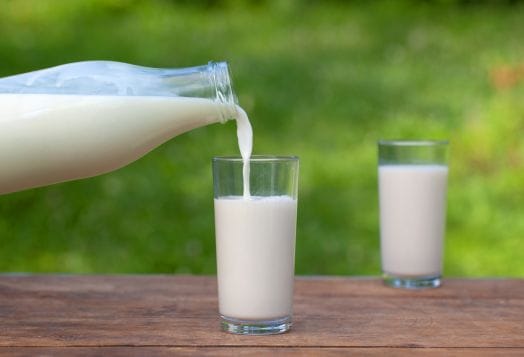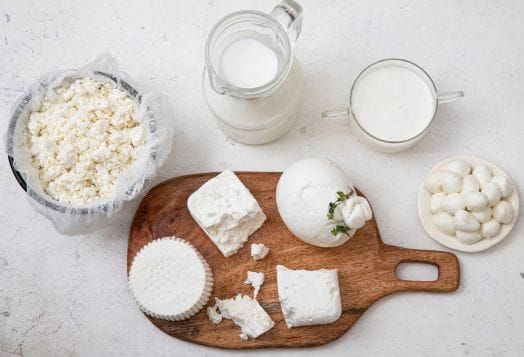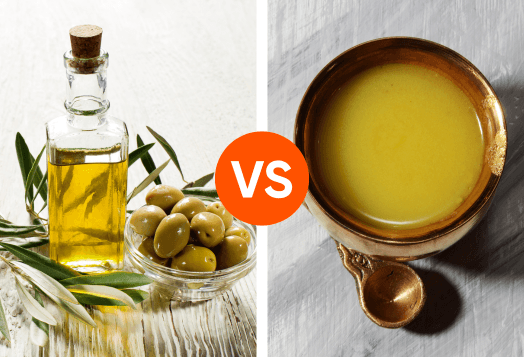If you grew up in India, chances are your childhood involved a nightly glass of milk, sometimes forced, sometimes enjoyed. Grandmothers swear by its virtues, Ayurveda weaves it into remedies, and generations believe in its essentiality. But with modern nutrition insights, questions arise. Drinking milk, is it a necessity or tradition?

Why Milk Has Stood the Test of Time
Think of the doodhwala delivering fresh milk door-to-door, a scene that evokes nostalgia and a sense of community. Or the offering of panchamrita (a mixture of milk, curd, ghee, honey, and sugar) in temples, symbolising auspiciousness and devotion.
Remember that glass of milk your mom forced you to drink before school every day? Turns out she was onto something! Drinking milk daily provides a readily accessible and comprehensive source of essential nutrients, contributing significantly to overall health and well-being.
1. Calcium for strong bones and beyond:
Milk is an excellent source of calcium, a mineral vital for building and maintaining strong bones and teeth.
The great thing about the calcium in milk is that your body can easily absorb it.
During periods of rapid growth, like childhood and adolescence, adequate calcium intake is crucial for optimal bone development.
3. Protein for muscle growth and repair:
Milk provides high-quality protein, containing all the essential amino acids the body needs.
This protein is crucial for building and repairing muscle tissue, making milk an excellent post-workout beverage.
The protein content also contributes to satiety, helping to regulate appetite and maintain a healthy weight.
4. Essential vitamins and minerals:
Milk contains a range of other essential vitamins and minerals, including:
Vitamin B12: Important for nerve function and red blood cell production.
Riboflavin (vitamin B2): Essential for energy production and cell growth.
Phosphorus: Works with calcium to build strong bones.
Potassium: Helps to maintain healthy blood pressure.
5. Bone mineral density and osteoporosis prevention:
A study published in the journal Advances in Nutrition indicates that regular milk consumption can contribute to improved bone mineral density, reducing the risk of osteoporosis later in life.
The combination of calcium, vitamin D, and protein in milk contributes to this defensive effect.
Milk Under the Microscope
But hold on! Before you declare milk a superfood, modern science has a few things to say. While dairy is undoubtedly a source of calcium, protein, and vitamins, it's also linked to potential health concerns:
1. Lactose intolerance:
A study on lactose intolerance in Indians, published in the American Journal of Clinical Nutrition, suggests that a significant portion of the population experiences lactose intolerance, a condition where the body struggles to digest lactose, the sugar found in milk. This can lead to digestive discomfort, bloating, and gas.
2. Inflammatory concerns:
A study published in the journal Nutrients suggests a link between dairy consumption and inflammatory conditions, such as acne and eczema.
3. Hormonal considerations:
Commercially produced milk may contain artificial hormones and antibiotics. Some experts suggest this could impact hormonal balance in humans.
4. Alternatives abound:
The rise of plant-based milk alternatives, like almond, soy, and oat milk, offers viable options for those seeking to reduce or eliminate dairy from their diet. These alternatives can be fortified with essential nutrients, providing a comparable nutritional profile.

Is it Good to Drink Milk Every Day?
Drinking milk daily has its pros and cons. Let’s break it down:
The upsides:
Stronger Bones: The calcium and vitamin D in milk are crucial for bone health.
Supports Muscle Growth: Milk’s protein content helps with muscle recovery after exercise.
Promotes Heart Health: Moderate dairy consumption is often associated with a lower risk of heart disease.
The downsides:
Lactose Woes: Many Indians experience bloating, gas, or discomfort due to lactose sensitivity.
Milk Allergies: Some individuals may react to milk proteins, leading to inflammation or digestive issues.
Hormonal Crises: Some commercially available milk may contain artificial hormones or antibiotics.
How Much Milk Per Day is the Sweet Spot?
The recommended intake varies based on age, activity level, and health conditions. Here’s what experts suggest:
For Adults: Around 250-500 ml of cow’s milk per day is considered beneficial.
For Children: 2-3 servings of dairy (including milk, curd, and cheese) daily.
For Seniors: Moderate consumption helps maintain bone health but should be balanced with other calcium sources.
However, it should be noted that excessive milk consumption can lead to digestive discomfort, iron absorption issues, and excessive calorie intake.
To Drink or Not to Drink Milk?
Milk is a powerhouse of nutrients, but it’s not a one-size-fits-all solution. The key is understanding your body’s needs, tolerances, and preferences. If milk suits you, enjoy it in moderation. If not, there are plenty of alternatives to meet your nutritional requirements. At the end of the day, a balanced diet matters more than whether you drink a glass of milk or not!
Disclaimer: This information provided is intended for general informational purposes only. It is not a substitute for professional advice or guidance. For personalised recommendations or specific concerns, please consult a certified professional dietitian or nutritionist.




